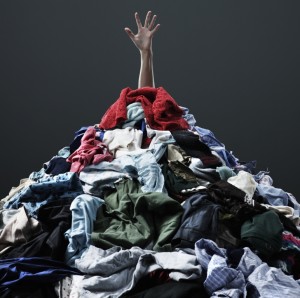Bobby gestured toward the candy rack and yelled, “Mom, I want this!” while they waited at the check-out counter of the local store. His mother told him that they weren’t buying the candy. But Bobby wasn’t finished. “I need the candy; I’m hungry,” he wailed. He then picked it up, ignoring his mother’s directions. Mom told Bobby to put the candy back, and Bobby did so, crushed. He was no longer a happy boy. He had seen something that he wanted and could not have.
Don’t we do that too? We want something that we don’t need, or perhaps isn’t even good for us. And even if we do get it, it isn’t enough. We want more. Our houses are packed; our garages don’t fit our cars; we rent storage facilities just to house our stuff.
Perhaps we don’t crave possessions, but desire money, prestige, or power. We think that more will make us happy. Yet that happiness is only temporary. When we have more, it becomes the norm and the cycle continues. Wants become needs, and unmet needs lead to a state of distress.
How much is enough? How do we know when we’ve reached it? How can we escape the trap of always wanting more?
Eight Secrets For Freedom From the “More” Trap
1. Take inventory of what we have.
It doesn’t have to be an exhaustive list, nor does it need to be too specific. I have a house that keeps me warm and dry, a car that runs well, food in my fridge and pantry, a piano, guitar, a comfortable bed, and more. Making this list helps us to see just how much we really have.
2. Understand why we feel the need to accumulate particular things.
Perhaps we have a scarcity mindset that tells us to get what we can now because there is only so much to go around. We may be stockpiling in case of a disaster. We could use possessions to fill empty spaces inside. We may have inherited the “accumulation gene” from our parents. When we see the motivations and driving forces, they often lose their power.
Here is an example from my own life. I keep buying books. Most of them are non-fiction books. I love to read, and I love to learn. However, one day I realized that I had so many books that they were cluttering my office and closing me in. I knew there was no way I would ever be able to read all of them. As I went through them, I found several that no longer seemed the least bit interesting. As I considered the possible reasons why I bought so many books, I came to this conclusion: although learning is a good thing, fear that I might not be good enough was driving some of my purchases. Understanding that freed me to donate several books and clean up my cluttered office.
3. Evaluate the impact that our stuff has on our lives.
I did this a while back, and found that some things were dragging me down. I had more clothes than I needed, several of the items didn’t go with each other, and I was stressed out trying to figure out what to wear in the morning. I donated almost a third of my wardrobe to others, and immediately felt free. Try it yourself. Look at your stuff with a fresh eye. Does it bring you joy? Do you feel as though you have to protect it? Is it crowding in on you so that you don’t have space? How much time does maintenance take that could be spent doing something else? Repeat this exercise every so often. It is liberating.
4. Stop comparing ourselves to others.
Many people’s lives look better than ours on the surface, and aren’t. Even if they are, what’s the point of doing the comparison? It doesn’t make us happy; it just makes us discouraged.
5. Do some creative thinking about what else we could do with some of our stuff.
When my grandmother died, she left several large trash barrels filled with yarn. We couldn’t decide what to do with all that yarn. We finally thought to donate it to a senior center. That gave senior citizens materials to work with, and they donated what they knit to a charity. Our gift became a double-blessing.
6. Notice the small things.
We are so often focused on the new, the shiny, the thing that makes a big splash. We overlook the simple, small things like a gorgeous sunset, fresh strawberries, a single rose, a child’s hug. Paying attention to these things and appreciating them transforms our thinking. We are happier and less stressed.
7. List out what is truly precious to us.
Relationships with people, experiences, a job, our health, laughter, freedom. These are what matter most. We sometimes forget that – lost in the striving to have more.
8. Focus on growth, rather than acquisition.
We want to strive for something; it’s part of our human nature. It’s a significant part of my wiring, as Achiever is one of my key strengths. Yet measuring success by possessions or status is such a trap. Let’s strive to be healthier, more generous, serve more people, be a better leader, parent or spouse. These goals have lasting value.
How have you freed yourself from the need to acquire more? Click here to join the conversation.


